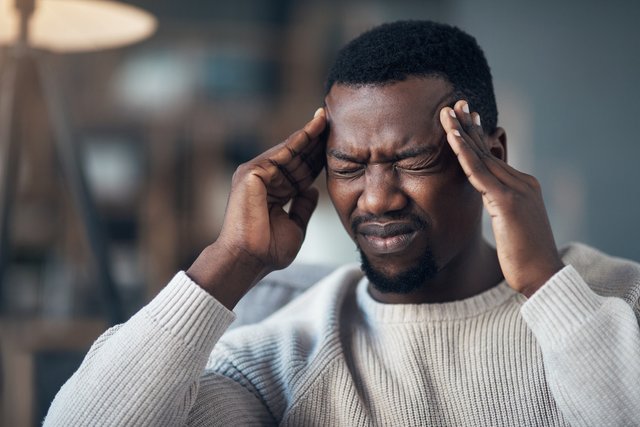
Many people can manage their headaches well using a combination of medications and other therapies. Treatment is most effective when it is personalized to your specific needs.
Read on to learn more about how to deal with chronic headaches.
Chronic Daily Headache Treatment
"Chronic daily headache" is a headache that occurs more than 15 days per month for at least three months. It is a group of headaches rather than a specific variety. Most persons who suffer from chronic daily headaches experience migraine or tension headaches.
Chronic headaches treatment is determined by the type of headache and whether medication overuse is involved.
Chronic migraine
Chronic migraine treatment should focus on preventive therapy, avoiding migraine triggers, and minimizing the use of acute headache drugs to minimize medication-overuse headaches. Preventive therapies include medications, behavioral therapy, physical therapy, and lifestyle adjustments (for example, good sleep hygiene, frequent exercise, and diet changes to minimize triggers). Management frequently necessitates the simultaneous application of these many medicines.
Chronic tension-type headache
Effective treatment for chronic tension headaches includes daily preventive medicines (such as tricyclic antidepressants), behavioral therapies, physical therapy, and lifestyle adjustments. As with chronic migraine, combining various therapies is often the best option.
Medication-overuse headache
This occurs when headaches (of any kind) trigger a loop of taking pain medicine, having the headache return after the drug wears off, and then taking more medication.
The strategy for managing medication-overuse headaches entails recognizing the cycle, discontinuing the medication overuse, and collaborating with your healthcare practitioner to develop an effective headache treatment and preventive plan. medicine-overuse headaches can arise even if the medicine is used often to treat chronic pain in other sections of the body. The body might become dependent on pain-relieving medicines, resulting in a headache. This occurs when the body can’t identify why the medication is being taken. If you frequently suffer from migraines or tension headaches, you should avoid taking pain relievers daily. Your healthcare professional might discuss alternative treatment options with you.
Complementary Treatments for Headache
In addition to medical treatment, many therapies can be offered to treat headaches.
Lifestyle Changes
Some modest lifestyle changes can help to minimize the number of headaches. This includes:
- Decrease or avoid caffeine
- Exercise several times per week
- Stop smoking
- Eat and sleep on a regular schedule
- Reduce the amount of alcohol you drink
While there have been no formal trials to prove the efficacy of these techniques, many headache experts have found them beneficial for their patients.
Physical Therapy
Some patients who get frequent headaches benefit from engaging with a physical therapist who specializes in headaches. This treatment may be used if you do not respond to drugs, respond only partially or temporarily, or are unable to use medicines (for example, if you are pregnant or breastfeeding).
Acupuncture
Acupuncture involves placing hair-thin metal needles into particular spots on the body. It causes little or no pain. Electrical stimulation is sometimes used on the acupuncture needle. Acupuncture has not been shown to alleviate tension or chronic daily headaches. People who do not want to attempt or are unable to tolerate other therapies may consider acupuncture.
Behavioral Therapy
Headaches can be provoked or exacerbated by stress, anxiety, depression, and other psychological conditions. Living with headache discomfort can also make it difficult to maintain relationships, work or school, and go about daily activities.
Behavioral therapy helps you deal with the stress, anger, or frustration that might accompany frequent or chronic headache discomfort. There are numerous types of behavioral therapy:
- Psychotherapy is consulting with a psychologist, psychiatrist, social worker, or other competent mental health professional to explore emotional reactions to chronic pain, treatment successes or failures, and personal relationships.
- Group psychotherapy allows you to compare your headache experiences, overcome the propensity to retreat and isolate in your pain, and encourage others' pain management efforts.
- Meditation, progressive muscle relaxation, self-hypnosis, and biofeedback are all examples of relaxation techniques that can help decrease muscle tension. People who suffer from persistent tension headaches may benefit the most from biofeedback.
- Group skill-building exercises teach you about living with pain, such as how to enhance relationships and build strength, prevent negative thinking, and deal with pain flares.
Herbal and Homeopathic Remedies
Several herbal and "homeopathic" therapies are marketed to treat or prevent headaches, including migraines. Whether and how these therapies work is frequently unknown. Patients should approach their use with caution and under the guidance of a trained medical physician.